Like other cats, Siamese cats are careful and clean about how they take care of themselves.
But even so, why do they smell from time to time? It looks like it’s time for you to give your feline buddy a quick check to ensure everything is okay.
I’ve compiled a list of the five most common explanations for why your Siamese cat smells:
Do Siamese cats smell?
Yes, they do. The way our Siamese cats eat, what they eat, or how they clean themselves all could cause a bad smell. In other cases, your cat could have an infection, parasites, or a different health problem.
Does an indoor cat smell?
Not if you take care of them and make sure the area they live in is clean and fresh-smelling. Cats are naturally hygienic animals.
But even if we train ourselves to be neat and clean, there are times when our Siamese cat smells for reasons we can’t control.
Why do cats smell bad?
Cats smell bad because of the food they eat. It could also be because of a problem with their digestive system or teeth.
Parasites, a wound, a skin, bladder, or ear infection, or their anal glands could be another reason.
First, find out where the smell is coming from. This is the best way to determine why your cat smells. Once you find out where the smell is coming from, you can give your feline companion a better and more targeted solution.
Why does my Siamese cat stink?
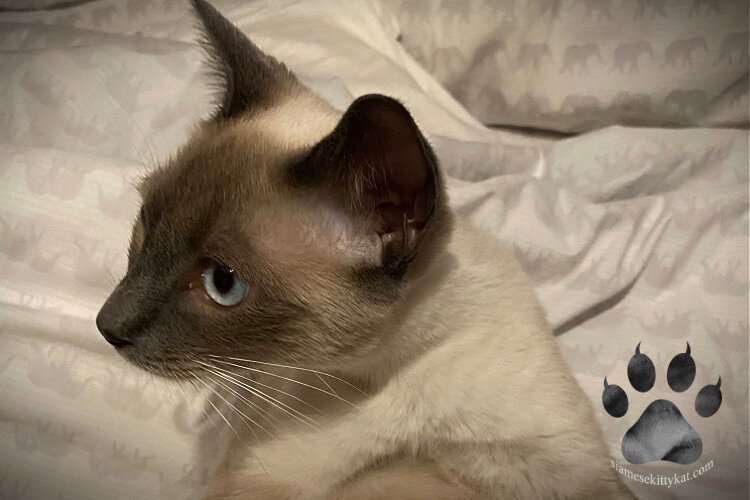
Grooming is a necessary and mindful activity for our feline companions, and they do it carefully. So, we don’t often think about the fact that our cuddly cats could have a bad smell. But, this does happen. Here are some of the most typical explanations:
1. The food you provide your cat has something to do with why he or she is stinky.
Your Siamese cat’s stomach does not tolerate everything your cat may want to eat. There are many foods that can cause a stomach ache.
A stomach ache is usually a signal that your Siamese cat has a digestive issue. This can cause a foul odor. If your cat starts throwing up often or having diarrhea, it may cause further stinky odors.
Watch your Siamese cat’s diet. Check what kinds of foods your cat is getting into aside from the cat food you buy.
Sometimes your Siamese cat can be allergic to ingredients in the cat food. Check the list of ingredients in your cat food.
Avoid cat foods full of fillers and non-essential ingredients.
It’s not unusual for Siamese cats to pass a lot of gas at times. Cats’ farts can really be stinky!
Siamese cats don’t make much noise when they pass gas because they don’t take in as much air at once when they eat.
If you notice your Siamese cat has stomach problems that are causing the smell you don’t like, you may need to change its diet.
Tip: Switch to cat food that is high quality and has many natural ingredients. A diet of good quality should not put too much strain on your cat’s tummy. Siamese cats that eat a diet higher in natural foods produce waste that’s near odorless.
2. Dental issues could be the culprit behind your Siamese cat’s bad breath.
It is normal for a furry feline’s mouth to smell a little bit. Siamese cats consume some odd foods, to say the least.
When anything shifts from the typical smell, there may be other reasons for your Siamese cat’s odor.
These include halitosis, periodontal disease, oral cancers, and upper respiratory infections. Other causes may include liver disease, kidney disease, lymphocytic plasmacytic stomatitis, or diabetes.
As your Siamese cat ages, he or she is more likely to develop some dental issues. Cats up to around four years old may suffer from some dental problems.
You may notice your Siamese cat is drooling a lot, spitting out food as it chews, and pawing at its mouth. This means your feline friend has pain in his or her mouth.
Tip: Siamese cats can get red and swollen gums. Get your cat to the vet for teeth cleaning and a dental checkup.
3. Your Siamese cat smells bad because of its litter box.
Clean the litter box every day.
I know, most of us get so busy and thinking about cleaning the litter box is the last thing on our minds. But cleaning your Siamese cat’s litter box daily is the best way to keep odors, parasites, and diseases at bay.
If the litter box you give your cat is too small, it will be hard for it to hide its waste as well as it would like. This one ought to be a little simpler to spot. Your Siamese cat’s urine and poop are then exposed to the air more, making them smell bad.
Tip: Keep your cat’s litter box clean. Daily disinfect and scrub the litter box. If you keep the litter box clean, your Siamese cat will smell better.
4. The foul odor from your Siamese cat could result from a wound or an abscess.
If your Siamese cat is always outside or has been in a fight, it may have wounds that are not visible to you at first. Skin wounds can fester and grow infected if the cat’s hair covers them. Because of this, a stinking discharge could follow.
If you do not treat those wounds promptly, they could have developed an abscess. The abscess may rupture, resulting in an unpleasant odor from the pus.
Tip: If you can’t figure out why your Siamese cat’s body smells so bad, you can check for wounds. Run your fingers through its fur and smell it to confirm.
5. Infectious skin disorders can cause your Siamese cat’s entire body to smell.
After petting a Siamese cat with a severe skin infection, your hands may feel greasy and have a pungent coating. Skin infection can make your feline companion smell unpleasant throughout its entire body. In most cases, you can trace the smell back to an infestation of bacteria or fungi.
Tip: If the infection is severe, your cat appears to have a thinner coat and inflamed skin. If your Siamese cat has a thinner coat and red, itchy skin, you should call your vet as soon as possible.
6. Your cat may have an ear infection that is causing an unpleasant odor.
Unpleasant odors go with the majority of ear infections in felines. An allergy can lead to a trace quantity of yeast in your Siamese cat, which may be the culprit of the ear infection.
Siamese cats get skin infections also because of deeper health problems. These can be cancer, an immune disease, or a parasite.
A bacterial infection can also bring ear infections in the ear canal. Depending on the type of bacteria that caused the disease, it can smell either bad or fruity.
Tip: Examine your Siamese cat’s ear thoroughly to check if there is any debris. This is frequently one sign of an ear infection.
7. There is a chance your cat’s bad smell is due to a bladder infection or urinary problem.
In felines, bladder issues can occur for no clear reason. If your Siamese cat has a bladder issue, you might find that he or she urinates more frequently than usual. Your Siamese cat may often smell like urine because it can’t control when it urinates.
Older cats are more likely to suffer from them. Please make an effort to get your Siamese cat to consume as much water as he or she can.
One of the classic signs of a bladder infection is a stench comparable to that of stinky feet or urine.
Tip: To know if your Siamese cat is suffering from a bladder infection, examine your cat’s urine and see what colour it is.
If it has a bit of a pinkish color, it is likely to contain blood. This would explain why the colour is pink. This is a tip for you to get in touch with your veterinarian as soon as possible.
Additional reason: Your cat’s smell may mean he or she is experiencing issues in the area of the anus.
Anal glands are tiny sacs outside of the anus of your cat. They contain a fluid usually present during your cat’s defecation. The fluid has a foul smell like fish and a greasy texture. After your cat defecates, the secretions leave a solid, distinctive odor.
Aside from this, your Siamese cat may also let the fluid out when it is tense, anxious, or stressed. If your cuddly cat always scoots around and touches his or her rear end, you may have reason to think this is the case.
If your cat won’t groom itself well, it may also develop a smell coming from its rear end. Your Siamese cat might not be able to clean after itself because he or she has diarrhea or an infection in the urinary tract.
How do I make my cat not smell?
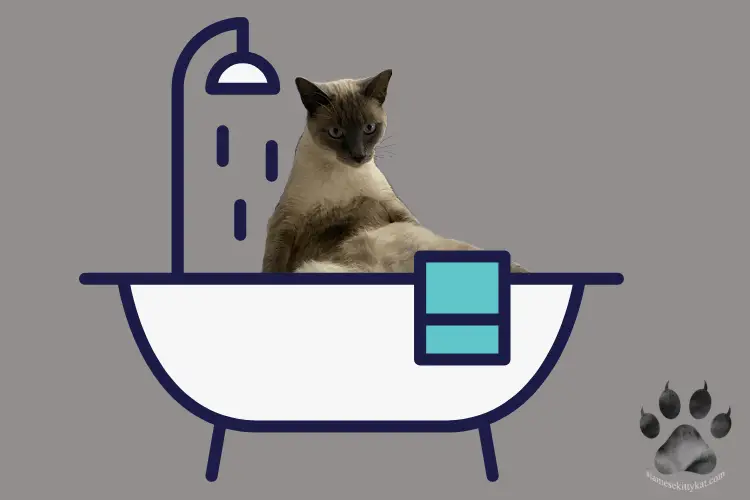
1. Make sure you give careful thought to what your cat eats. Check your cat’s eating habits too.
Your Siamese cat’s digestive system should not be under undue stress by its diet. You might want to switch to a better brand of cat food that is high quality and has more natural ingredients. Diets rich in natural foods tend to produce odorless feces in cats.
2. Check the dental health of your cat. Siamese cats need dental care.
If your Siamese cat is in dental pain and has bad breath, this could be the best sign that it needs a dental cleaning.
Keep your cat’s litter box clean at all times. Make sure the litter box your cat uses is always clean.
Thoroughly rinse and disinfect the litter box daily, and scrub it regularly. If you maintain a clean litter box, your Siamese cat will have a greater chance of not smelling bad from head to tail.
3. Check for wounds or cuts.
Go ahead and run your fingers through the fur of your cuddly cat. This will help you figure out if your Siamese cat has any cuts, open wounds, or other injuries. Applying bandage spray to your cat’s exposed wounds will help prevent further infection.
4. Use topical remedies to help your cat’s skin infection recover faster.
If you want to prevent skin infections in your cat, medicated shampoos are the way to go. Your vet may suggest you use ointments or creams on your cat’s skin. These will help your Siamese cat’s serious skin condition heal faster.
Do a thorough check of your cat’s ear to see whether it contains any fecal matter.
If your cat often scratches its ears and shakes its head, it has too much ear wax or dark debris around its ears. Contact your veterinarian if you are unsure how to clean your Siamese cat’s ears or what type of cleaner to use.
5. Check your cat’s urine every so often to see what color it is and note how often the pee color changes.
If you notice your Siamese cat’s urine turned pinkish, raise the quantity of water your cat drinks. Also, you should give your feline friend extra nutrients that can help with the problem with its bladder.
6. Bath your cat using a hypoallergenic shampoo formulated only for cats.
The average Siamese cat needs either none or very few baths each year. If you decide to bathe your cat, this time of year is a good time to use a hypoallergenic shampoo.
Your Siamese cat could emit a foul odor due to several factors. Any one of the seven reasons listed above could be the culprit. If you can find out where the smell is coming from, you will be much better able to figure out what it means and what to do next.
If you can’t figure out where your Siamese cat’s smell is coming from, you should talk to your vet soon. Your furry friend will thank you for doing this!
Get your FREE Siamese Cat 2026 Printable Calendar


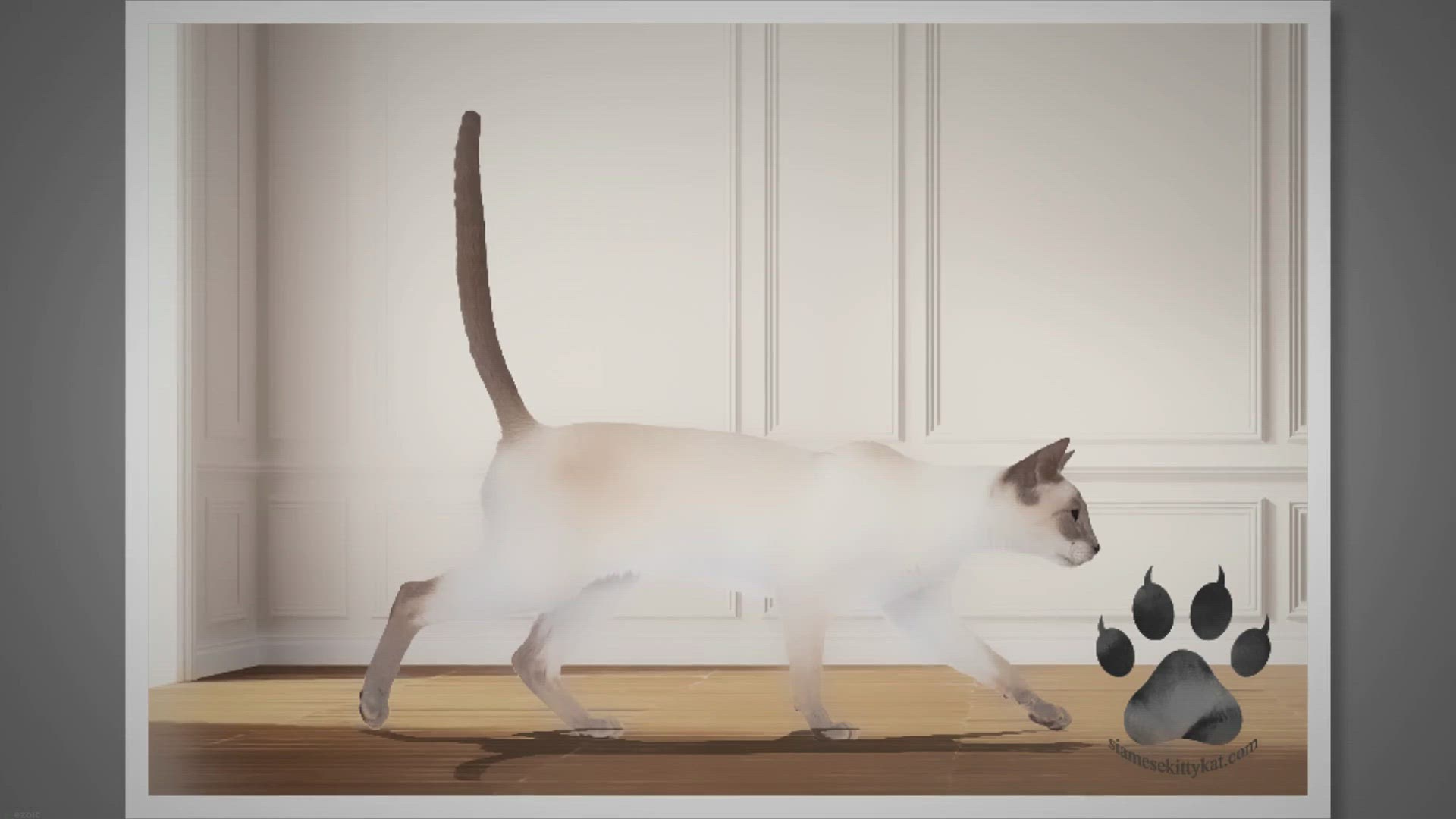

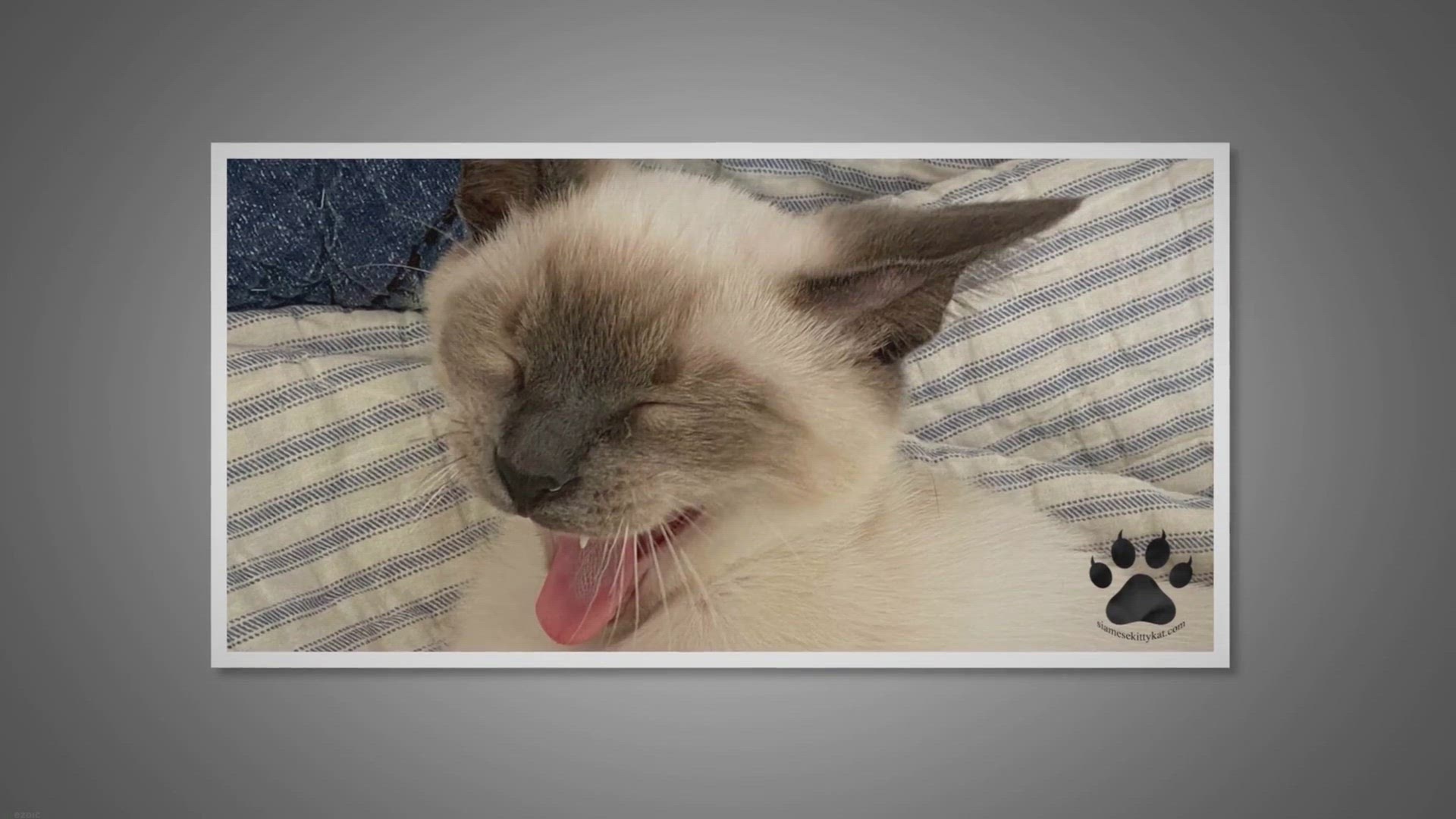
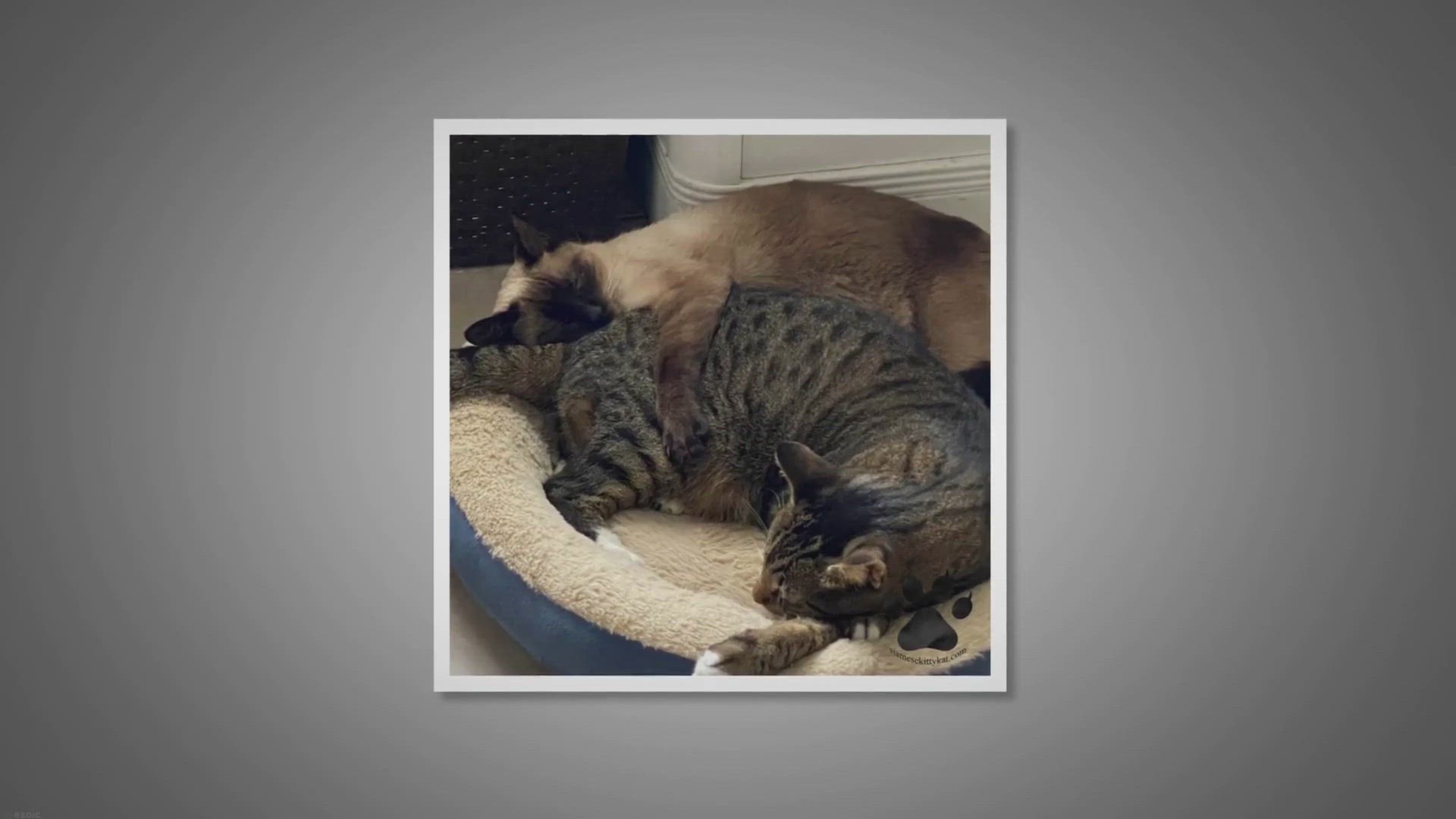
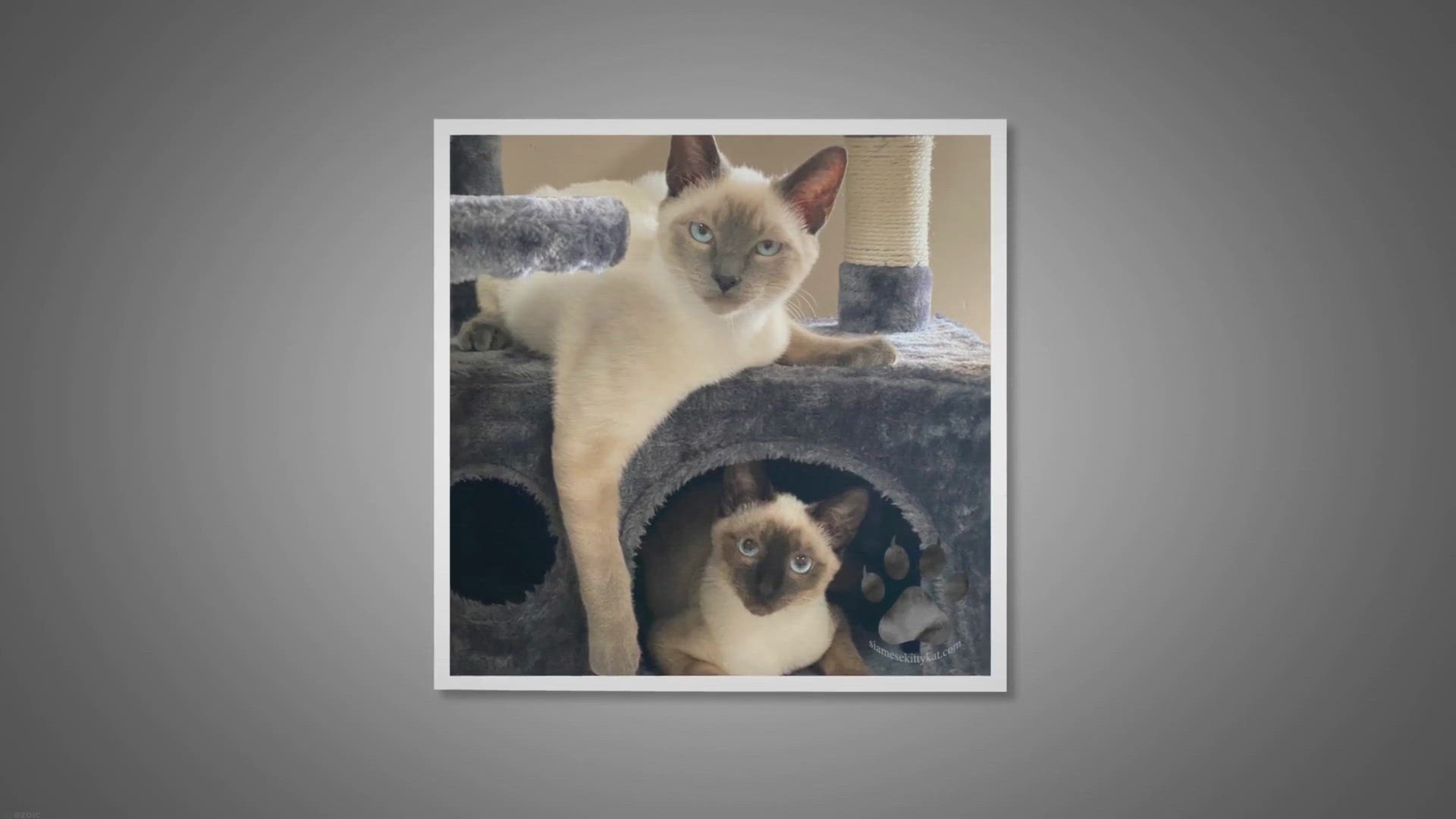
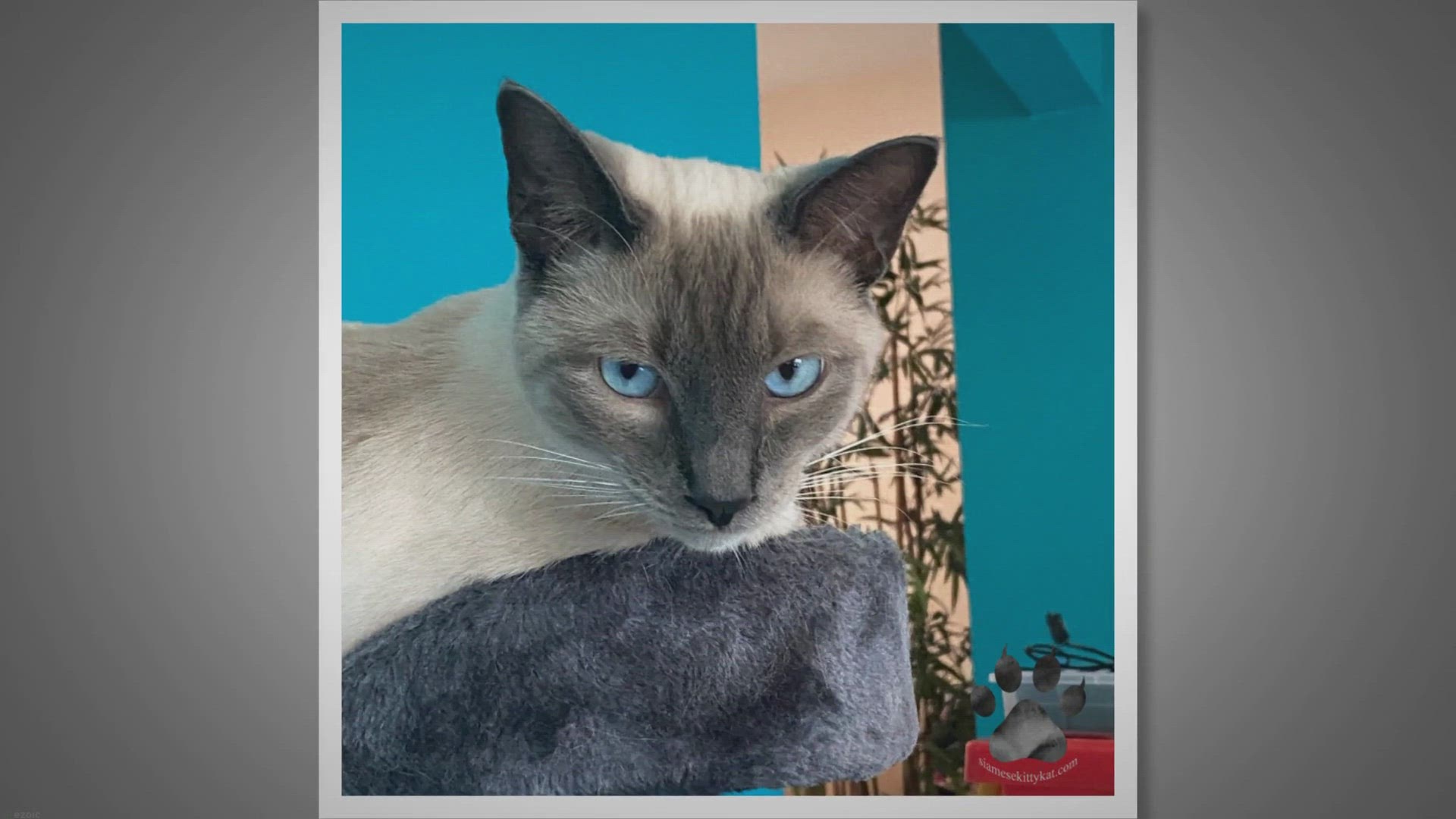
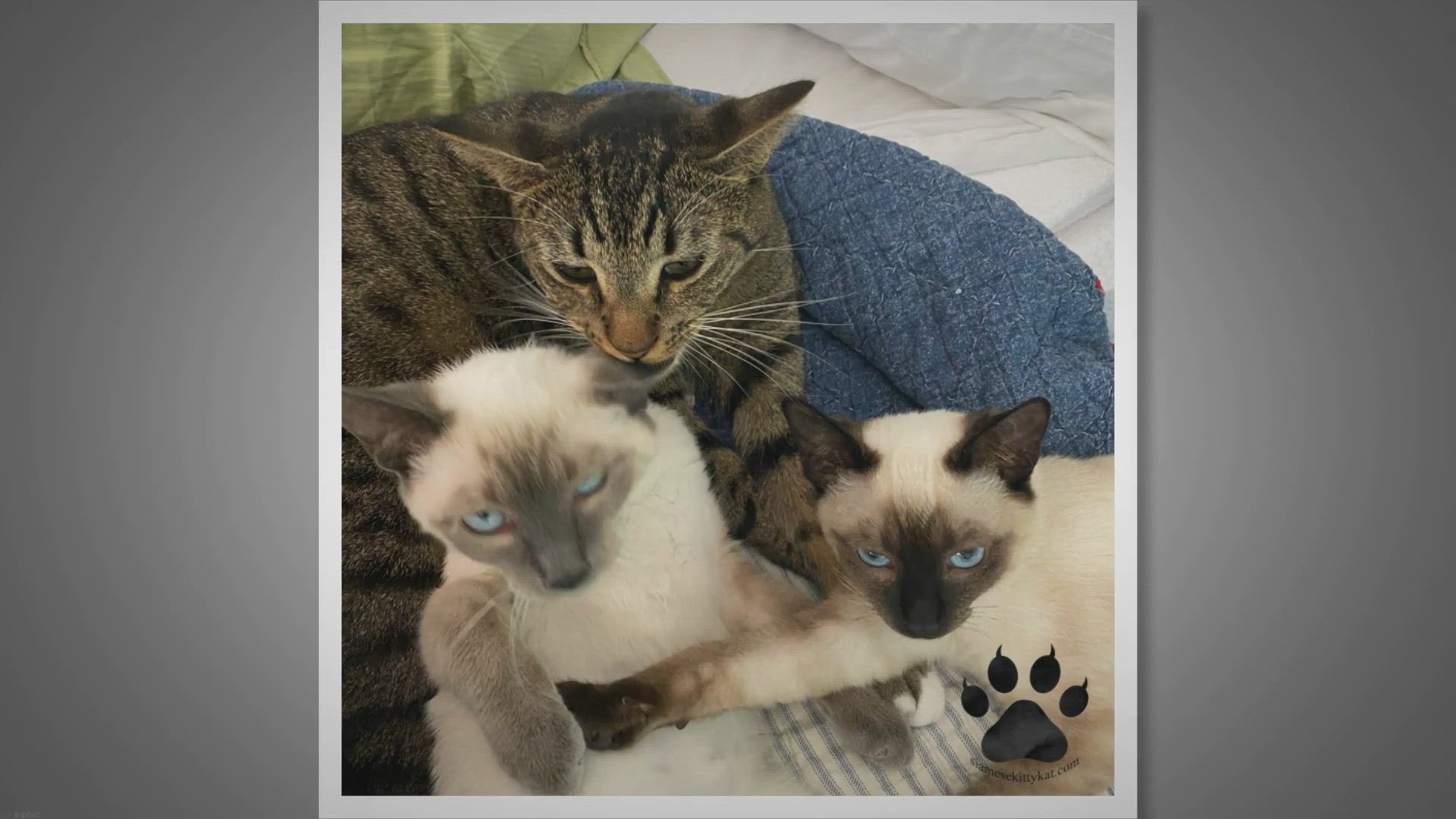
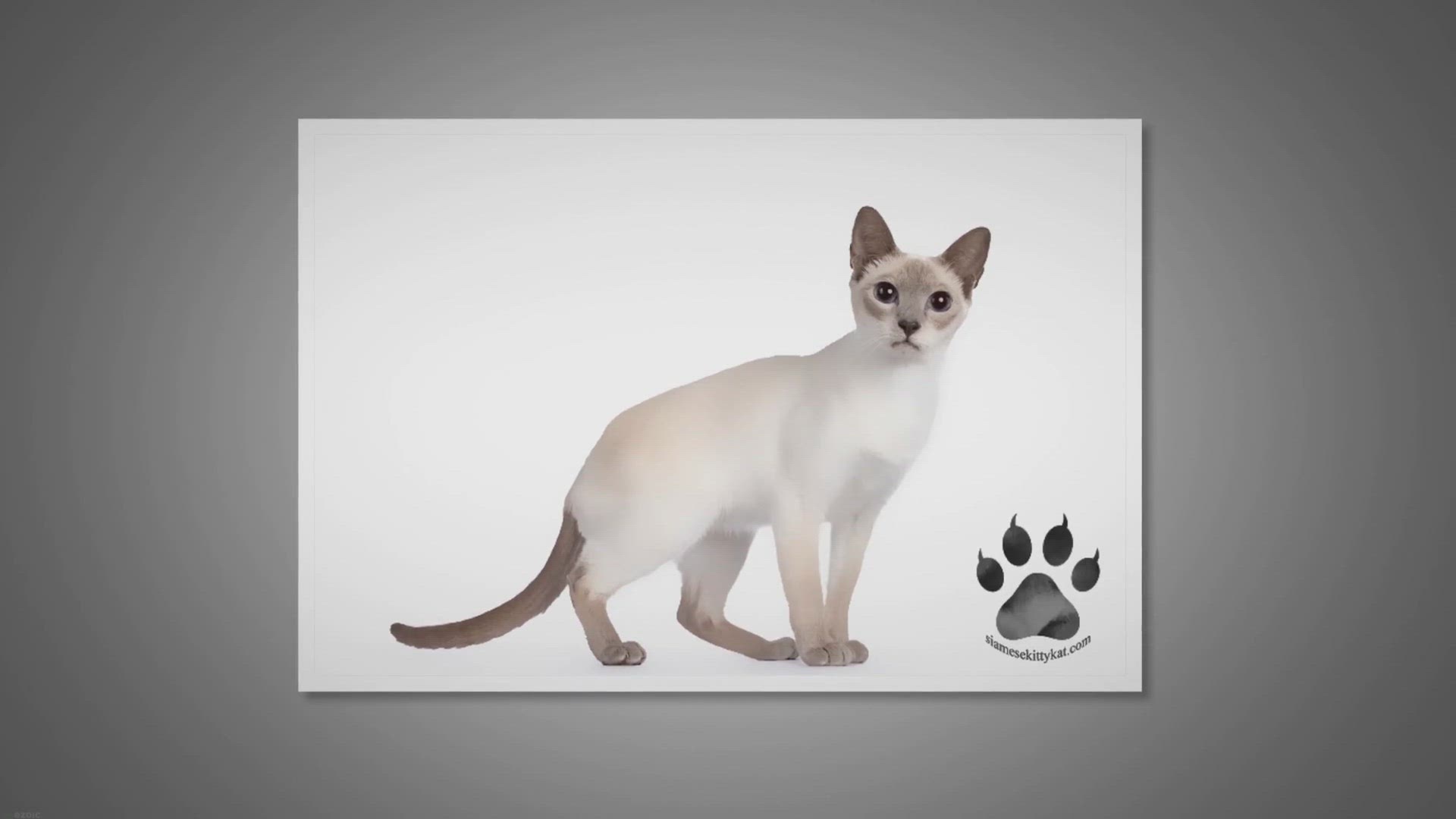

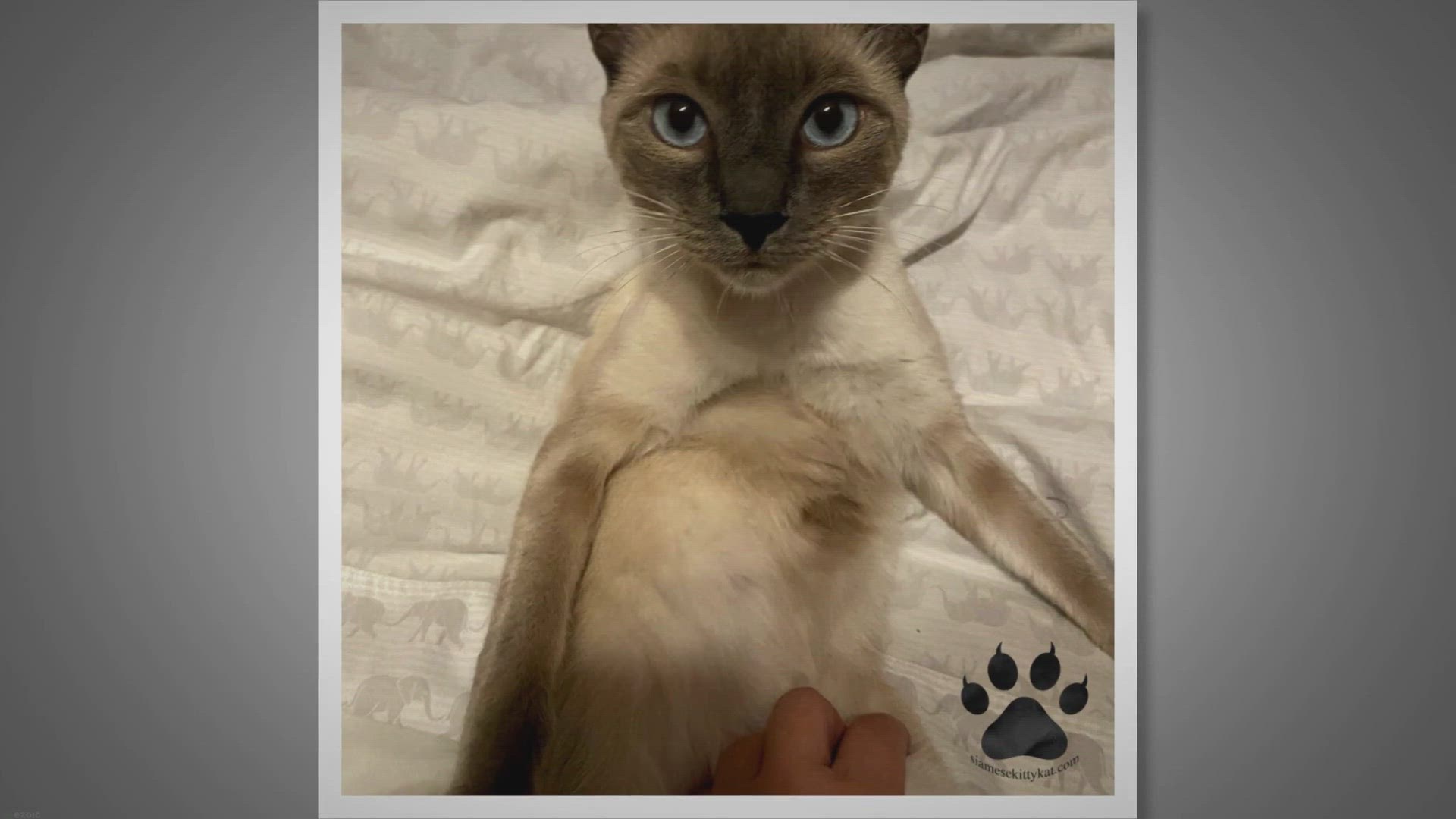
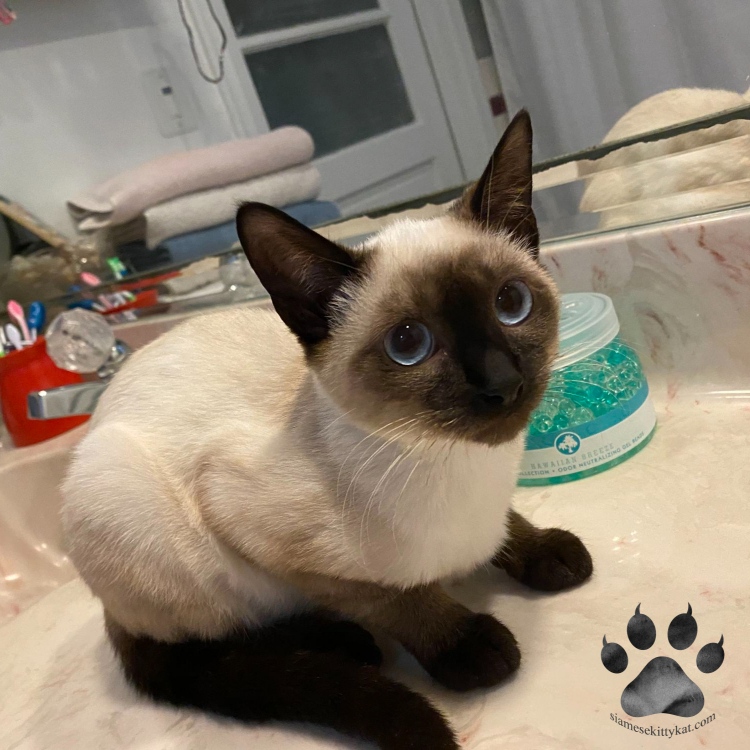
 Affiliate Link Notice
Affiliate Link Notice